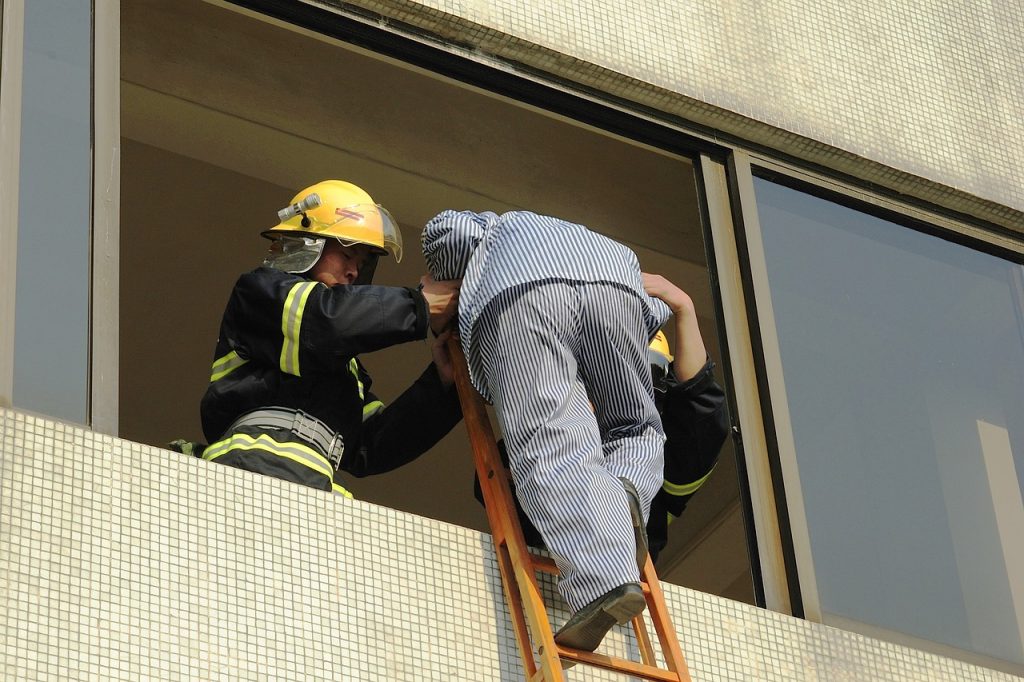Whether you’re at home, at work, or in public spaces, fires can be devastating and life-threatening. Having the knowledge and understanding of fire safety precautions can be significantly beneficial in preventing fires and minimizing the risk of dangerous accidents.
Install and Test Smoke Alarms
Smoke alarms serve as early warning systems, alerting occupants to the presence of smoke or fire and providing valuable time to evacuate safely. By detecting smoke before flames spread, smoke alarms can significantly reduce the risk of injuries and fatalities in a fire. It is crucial to install smoke alarms on every level of the home, including inside bedrooms and outside sleeping areas, as well as interconnected alarms to ensure all occupants are alerted regardless of their location. Regular testing of smoke alarms, typically done monthly, helps ensure they are functioning correctly and provides peace of mind that they will activate when needed.
Develop a Fire Escape Plan
In the event of a fire, having a well-thought-out plan can mean the difference between life and death. A fire escape plan outlines the quickest and safest routes for occupants to exit the building and designates a meeting point outside. By practicing the escape plan regularly with all household members or occupants, everyone becomes familiar with the layout of the home and knows exactly what to do in case of an emergency. This level of preparedness can help reduce panic and confusion during a fire, enabling occupants to evacuate quickly and efficiently.
Keep Flammable Items Away From Heat Sources
Flammable materials such as curtains, rugs, clothing, and paper are easily ignited by heat, flames, or sparks, posing a significant fire hazard. Placing these items too close to heat sources like heaters, stoves, fireplaces, or candles increases the risk of accidental fires. Experienced Denver personal injury attorneys at Manning Law emphasize that by maintaining a safe distance between flammable materials and heat sources, the likelihood of these items catching fire and resulting in injuries is greatly reduced.
Safely Store Flammable Liquids
Flammable liquids such as gasoline, propane, paint, and solvents pose a significant fire hazard due to their volatile nature. Improper storage of these liquids, such as leaving them in unsealed containers or storing them near heat sources, can increase the risk of accidental ignition and catastrophic fires. By storing flammable liquids in approved containers specifically designed for their safe containment, and in well-ventilated areas away from heat sources, the likelihood of ignition is greatly reduced. Additionally, implementing proper labeling and signage for flammable liquid storage areas ensures that occupants are aware of potential hazards and can take appropriate precautions.
Never Leave Cooking Unattended
Cooking-related fires are one of the leading causes of residential fires, often resulting from unattended cooking appliances. Leaving food unattended on a stove or in an oven can lead to overheating, burning, or igniting flammable materials nearby, such as kitchen towels or curtains. By remaining vigilant and attentive while cooking, individuals can quickly respond to any potential hazards and prevent fires from occurring. Also, keeping flammable items away from cooking appliances and using timers as a reminder of food in the oven or on the stove further reduces the risk of accidents.
Keep Matches and Lighters Out of Reach of Children
Matches and lighters are common fire-starting tools that can pose a significant danger if accessed by curious children. Young children may not understand the potential dangers associated with matches and lighters and may unintentionally start fires while playing with them. By storing matches and lighters in secure, out-of-reach locations, such as locked cabinets or high shelves, caregivers can prevent children from gaining access to these items and reduce the risk of accidental fires. Overall, educating children about fire safety and the importance of not playing with matches or lighters further reinforces the message and promotes a safer environment.
Keep Electrical Cords In Good Condition
Damaged or frayed electrical cords pose a significant fire hazard, as they can expose wires and lead to electrical sparks or short circuits. Overloaded or improperly used electrical cords can also overheat, increasing the risk of ignition and fire. Regularly inspecting electrical cords for signs of wear and tear, such as fraying, exposed wires, or damage to the insulation, can help identify potential hazards and take corrective action before accidents occur. Additionally, ensuring that cords are not pinched by furniture or under rugs helps prevent damage and reduces the risk of fires.

